![]() >> Sonja's Latest work By Sen + Sonja choose a medium Sculpture Sonja's c.v. The Medium A tour via thumbnail images
>> Sonja's Latest work By Sen + Sonja choose a medium Sculpture Sonja's c.v. The Medium A tour via thumbnail images
Scroll down to view installations of this work in 1997-2008, 2009 or the outdoors page, 2002 onwards, or the alternative 2015, 2018 concept.
| 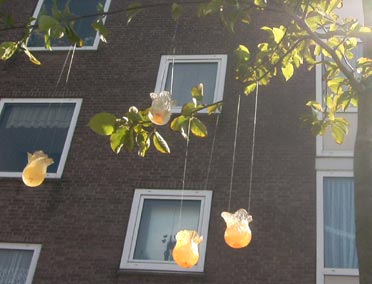 August 2005 Click on the image above for a larger view
| 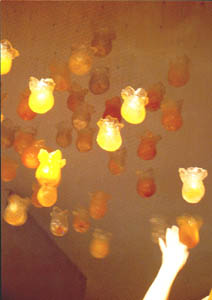 Tulpen uit Istanbul postcard, 15 x 20 cm, 1998. For sale at de Vishal, Haarlem. |
The tulips appear to be of glass, and hence fragile, however the hanging diversely tinted orange forms are robust enough to be handled and on close inspection, each is an individual.
Two texts (in the language of the country) are usually located underneath this work:
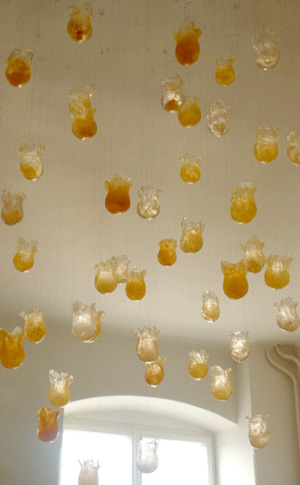
Crossing Borders Festival, Studio Orange,
Villach, Austria, 1997.
´It is not a tale invented but a confirmation of what went on before it...´
"Es ist keine erfundene Geschichte, sondern eine Bestätigung dessen, was vorher schon war..."
"Het is geen verzonnen bericht, maar een waarmaking van wat eraan voorafging..."
Yusuf 111, The Qur'an.
The Dutch House of Orange has reigned since 1572. The tulip from Turkey gained popularity in West Europe in the early 1600s.
Die aus der Türkei stammende Tulpe gewinnt ihre grosse Beliebtheit in Westeuropa am Anfang des 17. Jahrhunderts. Das Haus Oraien regiert seit dem Ende des 16. Jahrhunderts.
De tulp werd in Nederland en Duitsland geimporteerd vanuit Turkije, ongeveer in het jaar 1600. Rond die tijd werd het Huis van Oranje het Koninklijk Huis van de nieuwe Nederlandse staat.
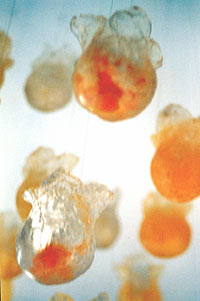
The aesthetic experience is a combination of touching or playing or looking up and a few historical facts. We see each tulip from the bottom up, sometimes they are out of reach.
The historical facts:
The tulip was imported into the Netherlands and Germany from Turkey around the year 1600, at roughly the same time as the House of Orange became the Royal House of the newly formed nation of The Netherlands.
The quotation from the Qur'an, "It is not a tale invented, but a confirmation of what went before it..." comes from a chapter of the Qur'an which refers to progressive revelation. This is a concept that all religious leaders or prophets come from the same source and are part of the same eternal religion. Here I connect this Moslem and Baha'i view of religion to that cultural symbol. The tulip was never a found object, it came from somewhere, and in this instance, that somewhere was a Moslem society.
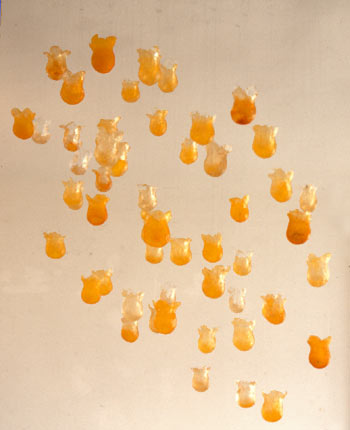
Crossing Borders Festival, Studio Orange,
Villach, Austria, 1997.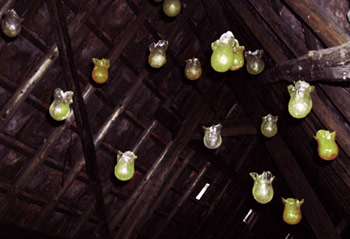
Threads of the Day, Wevershuis,
Leiden, The Netherlands, 2008.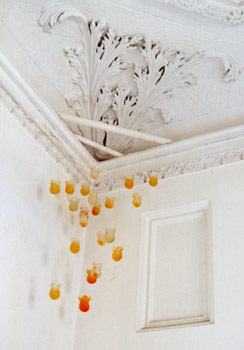
Dans le jardin..., exhibition, 2001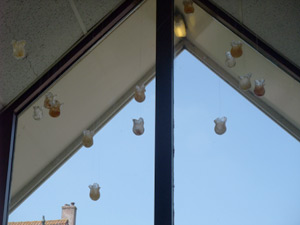
Galerie TamTam, exhibition, 2009
|
Shown | |
| 2018-19 | Kaipara Coast Sculpture Trail, Kaiapara Coast Sculpture Gardens, 4km north of Kaukapkapa, Aotearoa | New Zealand |
| 2018 | NorthArt, Northcote, Auckland, Aotearoa | New Zealand |
| 2015-16 | Wharepuke Art Park, Kerikeri, Northland, Aotearoa | New Zealand |
| 2015 | Binnenste Buiten(inside out), Leiden, The Netherlands |
| 2015 | Wittem Monastery summer show |
| 2013 | Land Art Maastricht, Maastricht, The Netherlands |
| 2009 | Galerie TamTam, Leiden, The Netherlands |
| 2008 | Threads of the Day, Leids Wevershuis, Leiden Museum of Weaving, Leiden, The Netherlands |
| 2006 | Between Tulip and Istanbul, DNA or Inspiration, Gallery Genootschap Kunstliefde, Utrecht, The Netherlands |
| 2005 | Far Near Neighbours, Saravego Winter Festival XX, Saravego Winter Festival, Bosnia-Herzegovina |
| 2004 | Oceania, Terpkerk, Urmond Terp Church (now used as an art gallery), Urmond, The Netherlands. |
| 2002 | The Exchange Gallery, Oxford, U.K. |
| 2002 | The Singeorz-Bai International Sculpture Symposium, Romania |
| 2001 | Dans le jardin des beaux arts ARS AEMULA NATURAE courtyard + entrance, Leiden, The Netherlands |
| 2000-1 | Keep Off the Grass, a show that toured over a period of 6 months in New Zealand: Te Wa, Wanganui; Blue Pacific Gallery at the Pataka Museum, Porirua; Artspace Gallery, Palmerston North, Aotearoa | New Zealand |
| 2000 | Korero, Korero, The Sarjeant Gallery, Wanganui, Aotearoa | New Zealand |
| 1998 | Zien is Geloven, Vishal, Haarlem, The Netherlands |
| 1997 | Crossing Borders, Studio Orange, Villach, Austria |
| 1997 | Alumni, old Bonnenfanten Museum space, Maastricht, The Netherlands |
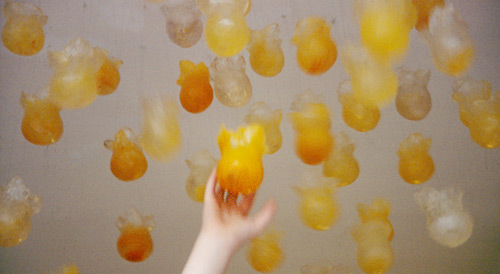
Installed in Den Haag, 1997.
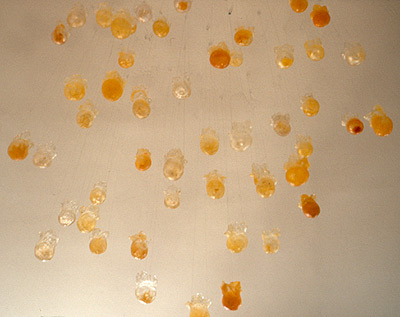
Installed in Villach, Austria, 1997.
|
|
| |
|
|
|
|
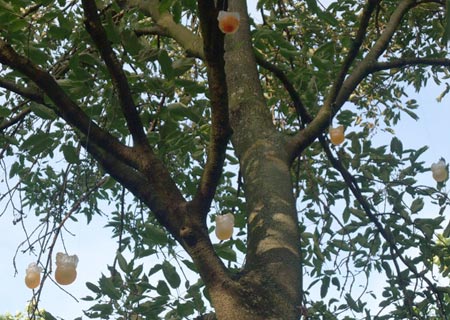
Installation as part of The TreeTop Gallery, Regents Park, London, 2009.
Curated by Claudia Moseley and Steph Smith, installations, performances, lectures and workshops took place over a 3 month period.
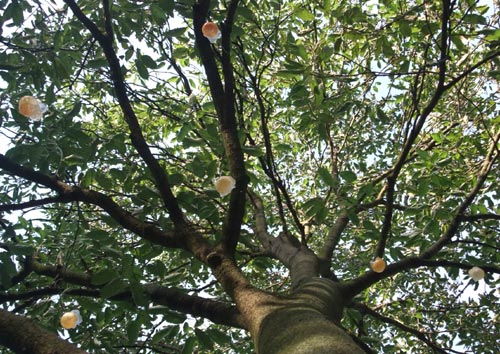
Installation in The TreeTop Gallery, Regents Park, London, 2009.
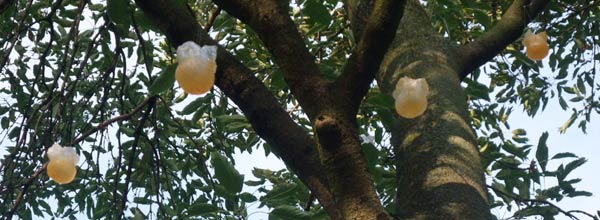
Installation in The TreeTop Gallery, Regents Park, London, 2009.
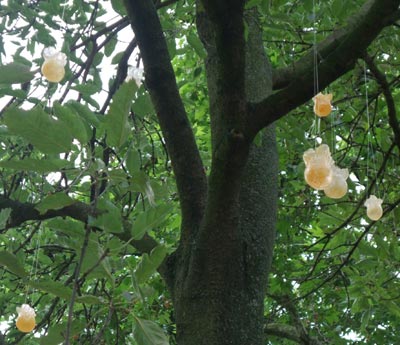
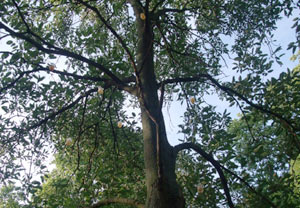
Installation in The TreeTop Gallery,
Regents Park, London, 2009.